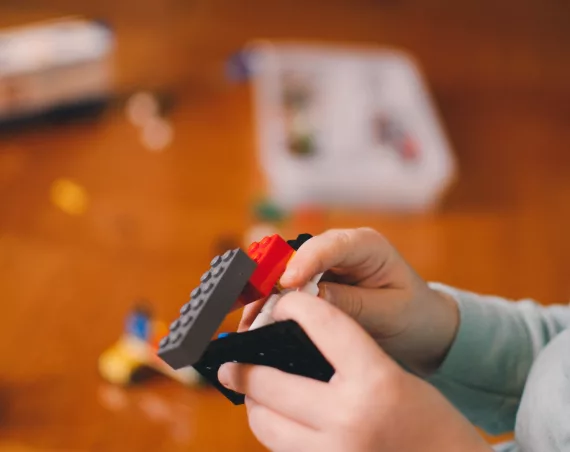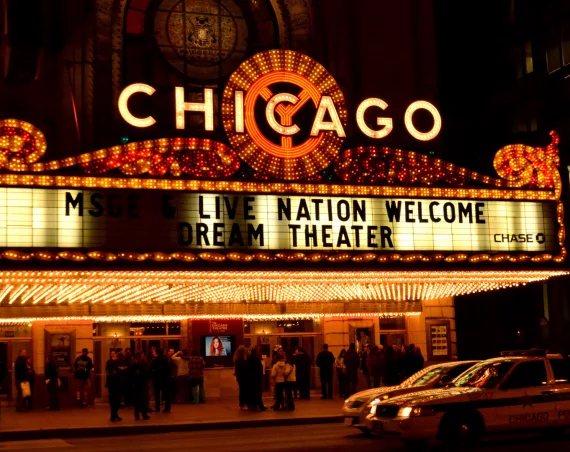
MotoGP and Nick Harris
Powered by RedCircle
Hello and welcome to Learn English Vocabulary. My name is Jack and I’m making this podcast for you to learn or revise English vocabulary. You can find a transcript of this podcast on LearnEnglishVocabulary.co.uk.
Today I’m making a podcast based on a recommendation from Jess about the language used by the legendary MotoGP commentator Nick Harris.
In case you are not a fan of MotoGP, it’s Grand Prix motorcycle racing. I’ve never really been a fan of the sport personally, my uncle was a big fan and there always seemed to be a race on, whenever I was at his house and I can understand the attraction, but there’s a lot about the sport that I don’t know and won’t attempt to talk about.
However, I have found a list of phrases and sayings that Nick Harris is famous for using when commentating on the sport and I’ll do my best to talk about these. I’m going to talk about 10 famous phrases that Nick Harris used when commentating.
Phrase number 1: Let the battle commence
This is the phrase that Nick Harris would use when the lights go out signalling the start of the race. All of the riders line up on the starting grid and watch the lights above the track. The lights turn red to signal that the race is about to start and when the lights go out, the race begins. And at this point, Harris would often proclaim: let the battle commence.
This is an interesting phrase. The battle is the competition. A battle is normally a fight during a war, but it’s often used in sport to describe a fierce competition. Commence is a slightly formal way to say start. The full phrase ‘let the battle commence’ sounds like words that an umpire or referee might say to start a competition, but it’s more commonly used in this way to simply emphasize that something is happening.
You can find loads of examples of let battle commence and let the battle commence, used to say that a competitive event has started. Similar phrases you hear with let are let the fun and games begin which is almost always used ironically before something unpleasant and let the good times roll which is a famous song by BB king.
Phrase number 2: Round 2 is underway
In the MotoGP championship, each race is a round. The first race is round 1, the second race is round 2 and so on. We use round to talk about stages in lots of sporting competitions, especially boxing. To be underway means to be in progress. If something is underway, it is happening right now. Or it has started and it hasn’t finished yet. It’s commonly used to talk about journeys, possibly because the word way, means route or path. You can use get underway to mean set off. We got underway at 8 in the morning. When Harris says Round 2 is underway he means that the race has started.
Phrase number 3: On the brakes
I have chosen this one because you can use ‘on the’ to talk about all the different controls that a motorcyclist or driver in a car can use. So the brakes are the devices that slow the motorcycle down. On a motorbike, the back brake is operated by the rider with their right foot so the rider can literally press on the brake with his foot. In cars, you use pedals so you can press on the brake, on the clutch and on the accelerator. Now, to be on the accelerator means to engage the accelerator even if you are on a bike and controlling it by twisting the handlebar control. You often hear commentators say and now the riders will be hard on the accelerator or coming into the corner they will be hard on the brakes.
Phrase number 4: Side by side they come
OK. If two things are side by side, they are next to each other. If two motorcyclists in a race are side by side, then they are racing hard. Normally, side by side is used to describe people walking together. The old couple were walking side by side on their way to the town. Alternatively, it’s used to talk about people who live in the same community. In some districts of Jakarta, Muslims, Christians and Buddhists have lived side by side for generations.
Phrase number 5: up the inside
In a race around a circuit or even around a corner, when you have two riders, one will be on the inside and the other will be on the outside. You sometimes hear about the inside line and the outside line. I think this is easy to understand, but I am having problems thinking of ways to describe it. It would be much easier if this was a video. The inside line would be the shortest line around the corner. If the road bends to the left, the inside line would be on the left-hand side of the road, closest to the apex or clipping point of the corner. In motor racing, usually, riders will try to stay as close as they can to the inside line when taking corners. If a rider is up the inside, that means they are trying to beat another rider to the corner by riding closer to the inside line. This means they will have a harder time turning, but they might be able to overtake that way.
Phrase number 6: that’s a classic overtaking manoeuvre
There are three items to look at in this phrase. First, the verb to overtake. That simply means to pass someone who is going the same direction as you. In a race, everyone is probably going in the same direction, but if you are driving on a regular road, you might have to overtake someone if they are driving really slowly. Where I live, there are lots of tractors and farm vehicles, so you often get stuck behind a really slow-moving line of traffic. Unfortunately, the roads around here are really narrow and windy and it can be very hard to overtake.
A manoeuvre is a word that I described in a recent podcast about the Mars Perseverance Rover. It means a complicated series of movements. When you do a driving test in the UK, as well as just driving around, you have to perform something like four manoeuvres. One is a three-point turn. To do this, you have to pull over and then turn the car around by going forward and steering one way and then reversing and steering the other and then going forwards and steering back the way you did the first time. This series of movements make up one manoeuvre. An overtaking manoeuvre is similar. There are a series of different movements which you need to perform to overtake whether on a road or on a racetrack.
A classic in this case means typical but in a good way, similar to correct. If you do something the classic way. Then you do it the right way, the way experts recognise is the best way. You can also make a classic error. This is obviously not the right thing to do, but it still means typical or somehow well known. If something is old and well regarded it is often described as a classic. In this use, a classic is something that sets the standard, that is an example of excellence or best practice. You get classic cars and classic motorbikes. If you play the guitar then a Fender Stratocaster is a classic.
What Nick Harris was saying was the overtaking manoeuvre was an example of excellence and also typical or correct.
Phrase number 7: A masterclass by Danny Pedrosa
Masterclass is a nice word. It’s quite easy to understand. It’s a class taught by a master. Danny Pedrosa won the MotoGP championship three times and finished in the top 5 15 times in his career. He is definitely a master of MotoGP. When commentating on a Grandprix, if Danny Pedrosa or any of the other top-flight riders performed a successful manoeuvre or series of manoeuvres and, say, went on to win the race, their performance might be described as a masterclass; an example for other riders to watch and learn from.
Phrase number 8: Absolutely breathtaking
Breathtaking means really exciting or really amazing. If something takes your breath away, it is so amazing that it leaves you speechless. Normally, we talk about amazing views or stunning architecture. So if you ever get to visit the Grand Canyon in the US, you might say that the view took your breath away. Alternatively, you could say that the view was breathtaking. If you want to stress this even more, you can say absolutely breathtaking. Breathtaking is already pretty extreme so you can’t say very or a bit – you have to use extreme adjective modifiers like absolutely or completely.
Phrase number 9: Never say never in MotoGP
Never say never. This is a slightly complicated expression that can be used to say that something really surprising has happened. Here’s why it’s complicated. If you say something is never going to happen, you are convinced. For example, you might hear someone say a new rider will never win on their first ride. Now, Nick Harris is saying that it’s possible for anything to happen. Even the things you think will never happen. So he says never say never in MotoGP because surprising things can happen. Realistically, a commentator might say something like this because something really surprising has happened.
Phrase number 10: Thank you very much indeed
I’m going to finish with a very simple phrase that I used to use to teach my students about the way words link together in English. Thank you very much indeed is strong way of saying thank you. The words much indeed link together so you’ll hear mu-chin-deed because whenever a word in English starts with a vowel sound, if there’s a consonant before it, it joins the vowel. Thank you very much indeed.
Right, that’s all I have time for today. I hope you have enjoyed this podcast. I do love reading your comments so please do leave me a comment on the site or a rating or a review on Apple Podcasts. I love to hear from you and any comments or suggestions you have. Thank you also to those of you that have bought me a coffee. I really appreciate it.
If there are any topics or songs or scenes from a film that you would like me to talk about or anything else you would like to hear, I would be delighted to make a podcast for you. So please visit LearnEnglishVocabulary.co.uk and say hello.
Thanks for listening.





3 Comments
Valen
Hey Jack! I’m not interested in motos but I listened it anyway. Could you please make a podcast about paintings or visual arts, like paintings techniques(vocabulary) or painting artists ? (interesting examples: James Rosenquist, Vincent Van Gogh, Mark Rothko, David Hockney, Pierre-Auguste Renoir, Claude Monet, Caravaggio, Jan Van Eyck, etc)
Thanks!!!
Didar
Hi Jack,
Thanks for making this podcast and I really learn a lot from it. I love this topic because I’m also a biker! May I make a little wish? I listen to your show when I was driving which means that I cannot open the website and read the transcript immediately. It would be nice if you can spell the vocabulary, If you don’t want to do so, it’s fine too. I’ll still follow you.
Best regard.
Carmenza Arroyave
Thank you for your podcast. It would be wonderful if you could do a podcast about nuclear energy,, advantages, disadvantages and climate change, thanks, kind regards..